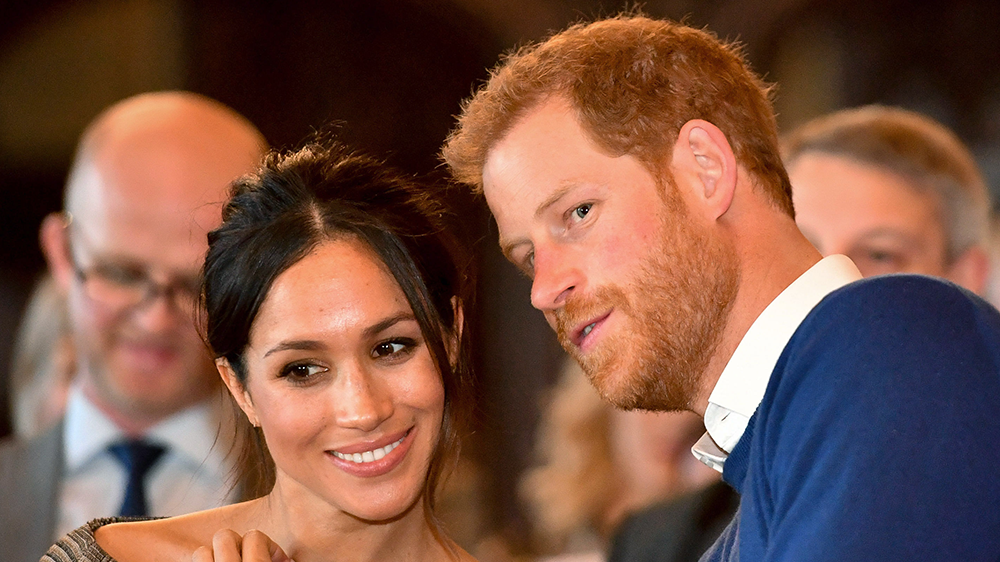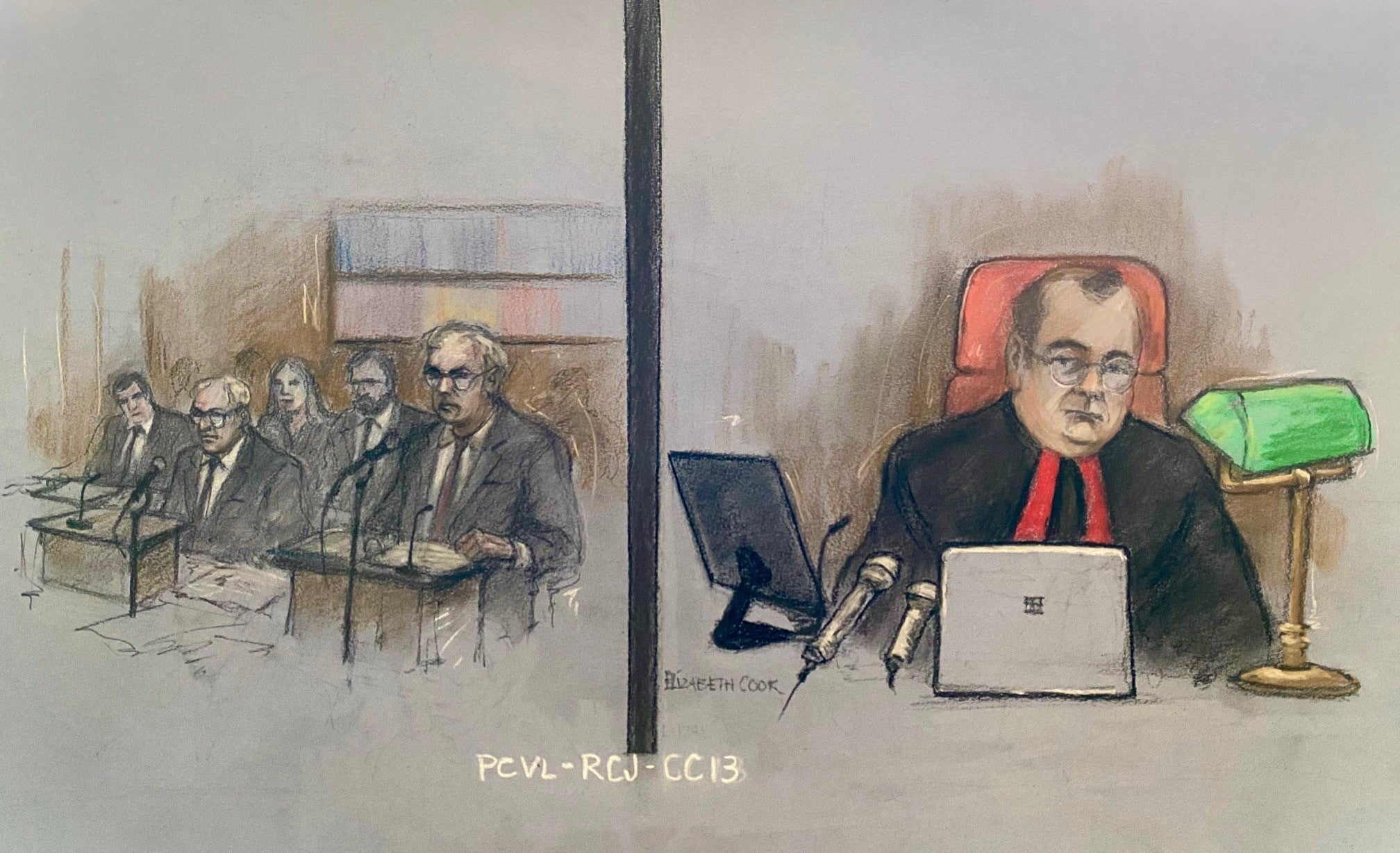Harry told Queen: ‘We can’t afford private security until Meghan and I earn our own money’
Harry is suing Associated Newspapers over an article about his legal proceedings

Your support helps us to tell the story
From reproductive rights to climate change to Big Tech, The Independent is on the ground when the story is developing. Whether it's investigating the financials of Elon Musk's pro-Trump PAC or producing our latest documentary, 'The A Word', which shines a light on the American women fighting for reproductive rights, we know how important it is to parse out the facts from the messaging.
At such a critical moment in US history, we need reporters on the ground. Your donation allows us to keep sending journalists to speak to both sides of the story.
The Independent is trusted by Americans across the entire political spectrum. And unlike many other quality news outlets, we choose not to lock Americans out of our reporting and analysis with paywalls. We believe quality journalism should be available to everyone, paid for by those who can afford it.
Your support makes all the difference.The Duke of Sussex sent an email claiming that he and his wife could not afford their own security until they could earn their own money, court documents have revealed.
The message has been disclosed in papers as part of Prince Harry’s bid to rule that the publishers of the Mail on Sunday libelled him with an article about his quest for police protection when he and his family visit the UK.
The court heard that in an April 2020 email to Sir Edward Young, the Queen’s private secretary, Harry “made it clear we couldn’t afford private security until we were able to earn”.
Harry’s lead attorney asked Judge Matthew Nickin either to strike out the publisher’s defence or to deliver a summary judgment, which would be a ruling in the prince’s favor without going to trial.
The prince is suing Associated Newspapers Limited (ANL) over the story which was published in February 2022 under the headline: “Exclusive: How Prince Harry tried to keep his legal fight with the government over police bodyguards a secret… then – just minutes after the story broke – his PR machine tried to put a positive spin on the dispute.”
ANL is contesting the claim, arguing the article expressed an “honest opinion” and did not cause “serious harm” to his reputation.
The duke’s challenge against the Home Office came about after he was told he would no longer be given the “same degree” of personal protective security when visiting.
Harry’s legal team argued the security arrangements were invalid due to “procedural unfairness” because he was not given an opportunity to make “informed representations beforehand”.
However, lawyers for the Home Office previously said Executive Committee for the Protection of Royalty and Public Figures (Ravec) was entitled to reach the decision it did, which is that Harry’s security arrangements will be considered on a “case by case” basis.
At a preliminary hearing in the libel claim on Friday, the High Court in London heard the duke’s bid to strike out ANL’s “honest opinion” defence or grant judgment in his favour on it.
Justin Rushbrooke KC, for Harry, said the Mail on Sunday articles “purported to reveal, in sensational terms” that information from court documents filed by the duke “contradicted public statements he had previously made about his willingness to pay for police protection for himself and his family whilst in the UK”.
The court was told that the claim involves two statements provided to journalists on Harry’s behalf, one that could be quoted publicly and a second to be paraphrased as background information, over the duke’s decision to bring legal action against the Home Office.

The court heard that in the public statement, Harry and his family were described as “unable to return to his home” due to the lack of police protection needed in the UK.
The statement continued: “The duke first offered to pay personally for UK police protection for himself and his family in January of 2020 at Sandringham. That offer was dismissed. He remains willing to cover the cost of security, as not to impose on the British taxpayer.”
Mr Rushbrooke said in written submissions that ANL’s defence to the libel claim “rests upon two provably false premises” relating to the statements.
The first was a suggestion that the duke had allegedly made a false claim over his willingness to pay for police protection in the UK, while the second was he had allegedly stated his case against the Home Office was over a refusal to let him pay for this security.
Mr Rushbrooke told the court: “It’s absolutely obvious that this statement makes no claim that the claimant made an offer to Ravec or the Home Office or that his judicial review proceedings were to challenge a refusal to accept it.”
He said that Harry’s public statement “expressly says” he first offered to pay in January 2020 during a meeting at Sandringham.
Mr Rushbrooke said that Harry’s public statement about the offer was “completely clear”, but claimed that reporting by the PA news agency had got “the wrong end of the stick” in saying the legal action was over a Home Office decision not to allow him to pay.
“That appears to have been the starting point for much of, or possibly all of, the publicity that followed that the defendant relies upon,” the barrister told the court.
Andrew Caldecott KC, for ANL, said that the bid to end their defence without a trial was “wholly without merit” and that “the whole case is built on sand”.
He said in written submissions: “The claimant was responsible for press statements that said he would pay for security when he had never expressed any willingness to pay until after the judicial review.”
Mr Caldecott later claimed that in an April 2020 email to Sir Edward Young, the Queen’s private secretary at the time, Harry “made it clear we couldn’t afford private security until we were able to earn”.
The barrister added that Harry’s offer at Sandringham was presented “as an offer to ‘pay or contribute’ made to the family, not to government”.
He continued: “The press statement then refers to ‘another attempt at negotiations’ being ‘also rejected’. Taken alone, that must suggest an attempt at negotiations with government.”
The hearing concluded on Friday afternoon, with Mr Justice Nicklin scheduled to give a ruling at a later date.


